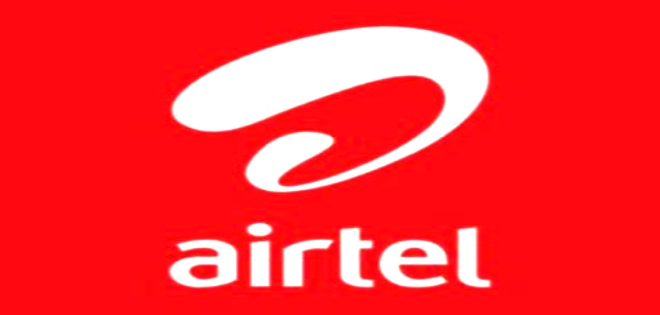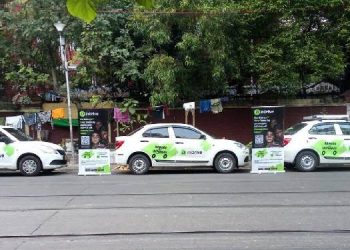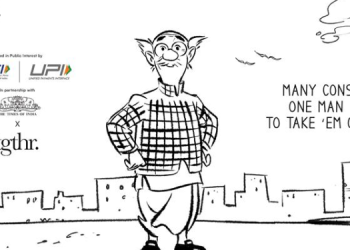A draft Comptroller and Auditor General (CAG) report has alleged that country’s largest telecom player Bharti Airtel got undue benefits of about Rs 14,500 crore by miscalculating its revenues, according to a website TheWire.
Bharti Airtel Ltd and its subsidiary, Bharti Hexacom, registered “significant abnormal gains” in the period between 2006-07 and 2009-10. The company systematically under-reported revenues and allegedly earned ‘significant abnormal’ profits through corporate restructuring.
The gains to Airtel on corporate restructuring alone have been estimated in excess of Rs 44,000 crore, said Aditi Roy Ghatak and Paranjoy Guha Thakurta, the authors of the news report.
It also said Bharti Airtel successively transferred infrastructure assets to its subsidiaries at zero value. The company and Bharti Hexacom might well have secured financial benefits to tune of Rs 10,978.77 crore through investment revaluation and Rs 33,617.55 crore through changes in the market value of shares received.
A Bharti Airtel spokesperson said, “We have always been in compliance of all laws of the land, including but not limited to those pertaining to taxes and levies and all government policies and regulations pertaining to telecom operations.”
CAG also noted Airtel under-reported revenues in the statements of revenue and licence fee and in the company’s primary books of accounts (trial balances) and profit and loss (P&L) account, especially on revenues earned from providing pre-paid, post-paid and roaming services, besides forex deals and infrastructure sharing. It also suppressed income from investments, interest and miscellaneous sources in calculating adjusted gross revenues (AGR) while computing license fees (LF) and spectrum usage charges (SUC).
Telcos share 8 per cent AGR with the government. A spectrum usage charge of five per cent is levied on spectrum bought through auction and a weighted average mechanism is used to calculate the SUC for companies that have bought some spectrum through auctions and got some allotted without auctions.
The licence fee and spectrum usage charges were not paid on the total amount deducted from revenue on account of commission/margin to the distributor/agents/franchisee/dealer, which stood at around Rs 1,070.79 crore. Similarly, about Rs 615.60 crore was deducted on account of free airtime, the report said.
These issues, along with others, lead to a total miscalculation of revenues at about Rs 14,500 crore.
According to company sources, it has been recording the sales on an agreed price and booked under the revenue in the P&L account accordingly, which means the realised selling price has been accounted as revenues. Also, there is a Telecom Disputes Settlement and Appellate Tribunal (TDSAT) order (dated April 23, 2015), which said if the sale was on a stated/agreed price, invoiced at that agreed price and booked under the revenue in the P&L account accordingly, without netting off any discount, the actual selling price would be the revenue and the difference between the MRP and this selling price cannot be added to “gross revenue”. The same order also said, “…any gain or loss due to foreign exchange fluctuation should have no bearing on the license fee,” and “…the reimbursement of costs of sharing (infrastructure sharing) only goes towards reducing their costs and should not be construed as revenue”.
The draft report does not incorporate the views of the department of telecommunications. Once the CAG draft report is finalised, it will be tabled in Parliament.
The draft report, according to TheWire, also said it gave its 95 per cent subsidiary Bharti Telemedia Rs 1,487.95 crore as an interest-free, unsecured loan in 2009-10, violating the “arm’s length” relation between a holding company and its subsidiaries.
This reduced its revenues by the amount of interest payable and subsequently, the LF and SUC payable to the Department of Telecommunications.
It also ignored revenue accounted under global operations and under its infrastructure provider (IP-1) licence for computation of revenue share. It also deducted written-off, bad debts worth Rs 91 crore from gross revenue and claimed deductions for providing PSTN (Public Switched Telephone Network) services against leased line charges in 2006-07, according to the story by TheWire.in.
Though, sources said Section 370(2) of the Companies’ Act 1956 imposes no such restrictions or conditions on the grant of loan by the holding company to its subsidiary.
Also, bad debts are revenues, which are not realised, and licence fee can only be levied on revenues actually realised.
On Monday, all telecom companies – Bharti Airtel, Vodafone and others – Supreme Court against the TDSAT’s order that ruled that certain non-telecom revenues like rent, profit on sale of fixed assets, dividend and treasury income would be counted as AGR, on which telcos have to pay license fee.
The draft report also talks about Airtel getting additional spectrum through certain violations. For instance, non-implementation of the recommendations of Telecom Regulatory Authority of India (TRAI) to auction 3.3 GHz broadband wireless access (BWA) spectrum resulted in a loss of Rs 3,009 crore to the exchequer and a corresponding gain to Bharti Airtel, according to the draft report. The company sources rejected this claim.
Also, the spectrum being referred to is only for point-to- multi-point connectivity and is used only for the last mile connectivity and not for any mobile service. This spectrum is allocated as per site-based requirement and not based on circle.

















